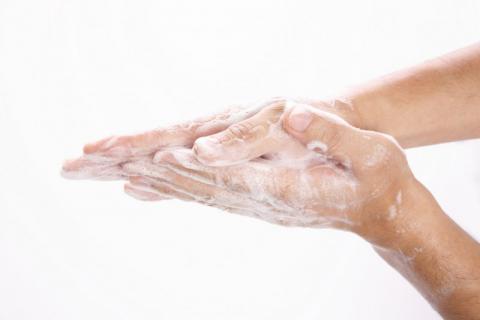Clean hands – a simple way to reduce the spread of infection

This winter the Public Health Agency (PHA) is emphasising the need for people to maintain good hand hygiene to reduce the risk of picking up or spreading winter viruses such as flu and norovirus, commonly known as the winter vomiting bug.
The PHA recommends simple, practical steps to minimise the risk of illness, especially over the Christmas period. Older people and those with underlying health conditions need to be particularly aware of ways to reduce their risk of picking up infections.
The risk of infection can be reduced by:
- Always maintaining good personal hygiene. Wash your hands frequently, especially after visits to the toilet, and before preparing or eating food.
- Use a tissue to cover your mouth and nose when coughing or sneezing, throw the tissue in the bin and wash your hands as soon as you can.
- Encouraging children to wash their hands frequently and use tissues as well.
- If you have vomiting or diarrhoea, or flu symptoms don’t visit friends or relatives in hospital or residential and nursing homes. Avoid visiting your GP’s surgery – it is much better to phone in for advice first.
Dr Lorraine Doherty, Assistant Director of Public Health (Health Protection), PHA, said: “The PHA would like to advise the public of how everyone can play their part in preventing the spread of winter viruses.
“Receiving the seasonal flu vaccine is the best way to protect yourself and others from getting flu, so if you are in an ‘at risk’ group get the vaccine now, it’s still not too late, but for others the most effective way to prevent the spread of viruses is through practicing good hand hygiene.
“Clean hands are vital in controlling the spread of viruses. Anti bacterial gels and wipes are not a substitute for washing hands with soap and water as gels/wipes may be unable to remove contamination in the way that running water can. However they may be useful if hand-washing facilities are not available.”
For advice on how to wash your hands visit www.publichealth.hscni.net or www.nidirect.gov.uk
Contact the PHA Press Office on 028 9031 1611
At risk groups for flu include the following:
- Anyone aged 65 or over, even if they feel fit and healthy at the moment.
- Pregnant women (at any stage of pregnancy).
- Children and adults who have any of the following medical conditions:
- a chronic chest condition such as asthma;
- a chronic heart condition;
- chronic kidney disease;
- diabetes;
- lowered immunity due to disease or treatment such as steroids or cancer therapy;
- a chronic neurological condition such as stroke, multiple sclerosis or a condition that affects your nervous system, such as cerebral palsy;
- any other serious medical condition – check with your doctor if you are unsure.
- Children who have previously been admitted to hospital with a chest infection.
- Children attending schools for those with severe learning difficulties.
- Anyone living in a residential or nursing home.
- Main carers for elderly or disabled people.
